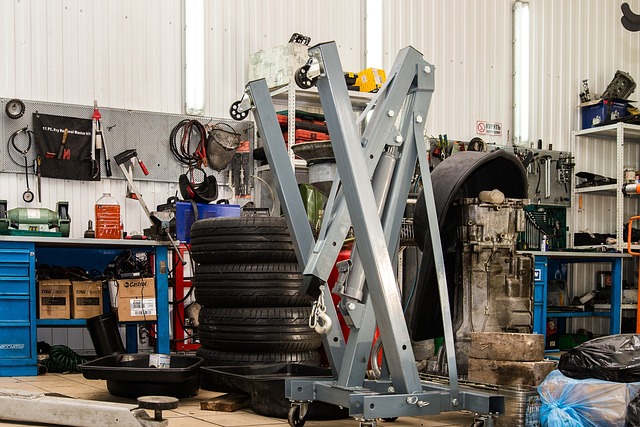Translation services for UK Maintenance and Service Manuals must adhere to stringent regulatory standards set by bodies like the HSE and BSI, focusing on accuracy, comprehensiveness, and timeliness. Professional translators need in-depth technical knowledge and cultural understanding to convey complex instructions clearly. Quality checks and reviews ensure compliance with legal requirements, while engaging internal experts facilitates iterative improvements, enhancing manual quality and safety communication.
Are you ensuring your UK service manuals comply with regulations? In today’s global market, accurate and consistent translations are crucial. This guide explores the UK regulatory requirements for service manuals, highlighting the essential role of professional translation services in maintaining compliance. We’ll delve into best practices to guarantee precision post-translation, equipping you with the knowledge to navigate this complex landscape effectively. Discover how top-tier translation services can be your secret weapon in creating compliant service manuals tailored for the UK market.
- Understanding UK Regulatory Requirements for Service Manuals
- The Role of Professional Translation Services
- Ensuring Accuracy and Consistency in Translations
- Best Practices for Maintaining Compliance Post-Translation
Understanding UK Regulatory Requirements for Service Manuals

Understanding UK Regulatory Requirements for Service Manuals
In the UK, service manuals must adhere to strict regulatory guidelines set by various bodies, including the Health and Safety Executive (HSE) and the British Standards Institution (BSI). These regulations ensure that technical documentation is accurate, comprehensive, and up-to-date, thereby promoting safety and quality in maintenance practices. For businesses offering translation services for UK Maintenance and Service Manuals, it’s crucial to have a deep understanding of these requirements to deliver compliant content.
Translation accuracy is paramount, as even minor errors can lead to serious consequences. Therefore, professional translators must be well-versed in the technical terminology and industry-specific jargon used in service manuals. They should also stay abreast of regulatory changes and updates, ensuring that translated documents remain current and precise. Compliance with UK regulations not only guarantees legal adherence but also instills confidence in the quality and reliability of the service manuals among end-users.
The Role of Professional Translation Services

In the realm of UK service manuals, ensuring compliance with regulations is paramount. This is where professional translation services play a pivotal role. Accurate and reliable translation is essential to convey critical information about maintenance and service procedures effectively. With a team of experienced translators, these services guarantee that every detail is not just translated but also adapted to suit the linguistic nuances of the target audience.
Professional translation goes beyond word-for-word equivalence. It involves understanding the technical context and cultural implications of the content. For UK Maintenance and Service Manuals, this means translating complex instructions and terminology accurately, ensuring the manual remains a reliable resource for technicians and engineers. By leveraging advanced tools and industry expertise, these services ensure consistency, clarity, and adherence to regulatory standards across all translated documents.
Ensuring Accuracy and Consistency in Translations

When it comes to translating UK service manuals, precision is key. Accurate translations ensure that critical safety information and maintenance procedures are clearly communicated to users, regardless of their language proficiency. Inaccurate or inconsistent translations can lead to misunderstandings, misuses of equipment, and even safety hazards.
Reputable translation services for UK maintenance and service manuals employ native-speaking professionals who understand not just the language but also the technical jargon specific to the industry. They follow standardized procedures and use specialized software to maintain consistency in terminology across all documents. Regular quality checks are conducted at various stages of the translation process to identify and rectify any errors or discrepancies, thereby guaranteeing that the final product is error-free and compliant with regulations.
Best Practices for Maintaining Compliance Post-Translation

After a professional translation service has been employed for your UK maintenance and service manuals, maintaining compliance remains a critical aspect. One of the best practices is to conduct thorough reviews at regular intervals to ensure the translated content aligns with the latest regulations. This involves fact-checking all technical details, terminology consistency, and legal requirements specific to the industry. Engaging subject matter experts from within your organisation can significantly aid in this process.
Additionally, establishing a feedback loop between translators, revisers, and stakeholders is essential. Regular communication facilitates quick adjustments, ensuring that any regulatory changes are promptly incorporated into future editions of service manuals. This iterative approach not only guarantees compliance but also enhances the overall quality and accuracy of your documentation.
In ensuring your UK service manuals meet regulations, a deep understanding of local requirements and professional translation services are essential. By adhering to best practices throughout the process—from accurate and consistent translations to post-translation compliance maintenance—you can create reliable, compliant manuals that support safe and effective equipment maintenance in the UK. Translation services for UK Maintenance and Service Manuals play a pivotal role in this journey, ensuring your content is accessible and accurate for all users.
